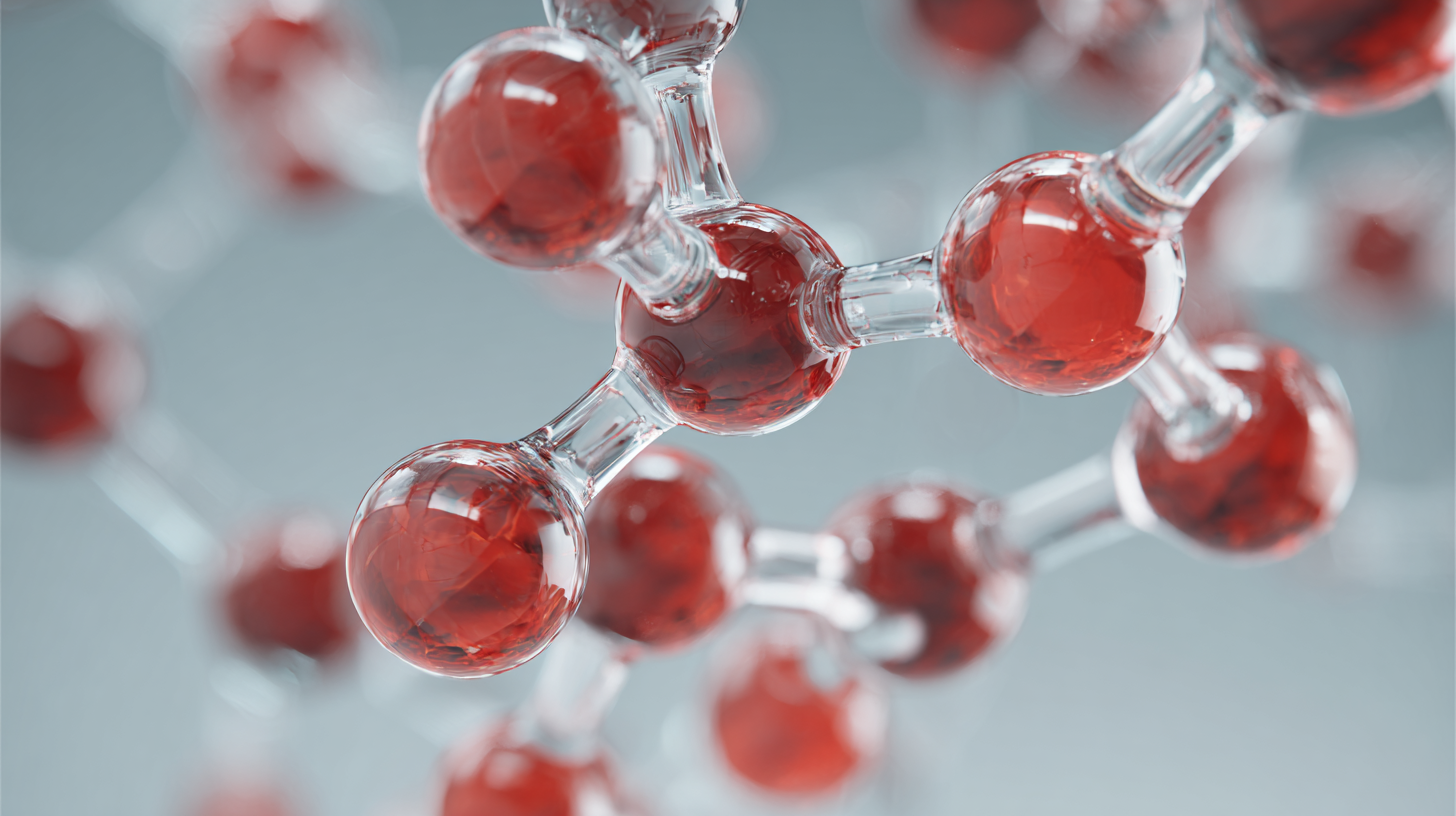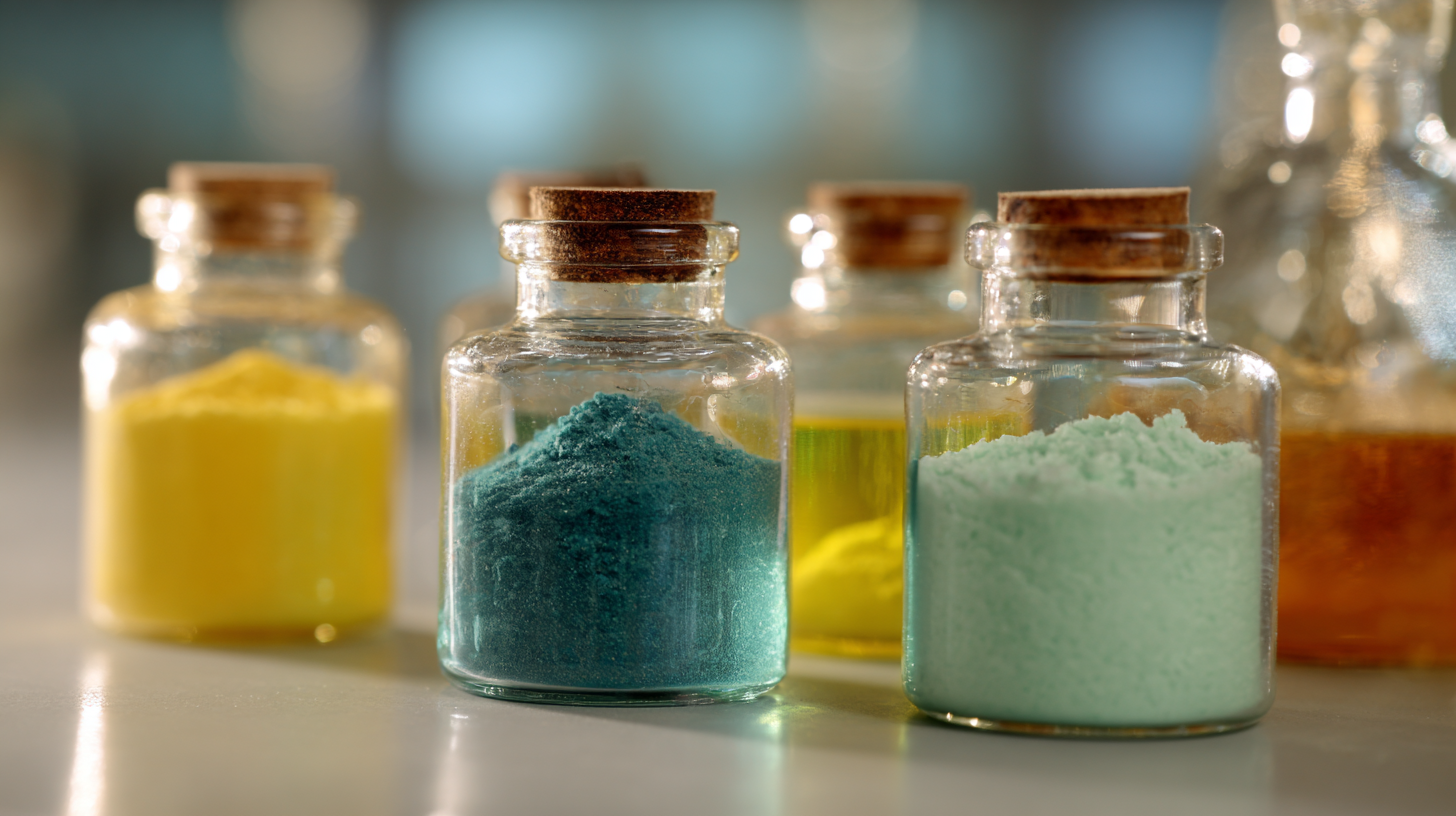 Propionyl Chloride, a versatile acyl chloride, has garnered considerable attention in the field of modern chemistry due to its numerous applications and benefits. This compound plays a critical role in the synthesis of pharmaceuticals, agrochemicals, and specialty chemicals. According to a recent report by Grand View Research, the global acyl chlorides market is expected to witness significant growth, driven by the rising demand for innovative chemical processes and the expanding pharmaceutical sector. The report indicates that the ability of Propionyl Chloride to facilitate the formation of esters and amides makes it an indispensable reagent in organic synthesis.
Propionyl Chloride, a versatile acyl chloride, has garnered considerable attention in the field of modern chemistry due to its numerous applications and benefits. This compound plays a critical role in the synthesis of pharmaceuticals, agrochemicals, and specialty chemicals. According to a recent report by Grand View Research, the global acyl chlorides market is expected to witness significant growth, driven by the rising demand for innovative chemical processes and the expanding pharmaceutical sector. The report indicates that the ability of Propionyl Chloride to facilitate the formation of esters and amides makes it an indispensable reagent in organic synthesis.
Moreover, as industries increasingly seek sustainable and efficient methodologies, the use of Propionyl Chloride in reaction pathways presents opportunities for the development of novel substances with improved performance characteristics. Thus, exploring the applications and benefits of Propionyl Chloride is crucial for researchers and practitioners aiming to advance chemical technologies and enhance product efficacy.
 Propionyl chloride, an acyl chloride derived from propionic acid, possesses unique properties that make it a valuable compound in modern chemistry. With a molecular formula of C3H5ClO, it is characterized by its colorless liquid state at room temperature and its strong, pungent odor. This compound is highly reactive, particularly towards nucleophiles, making it an excellent reagent for acylation reactions. Understanding its production methods is crucial; propionyl chloride can be synthesized through the reaction of propionic acid with thionyl chloride or phosphorus pentachloride. These methods not only yield high purity products but also exemplify efficient synthetic strategies in organic chemistry.
Propionyl chloride, an acyl chloride derived from propionic acid, possesses unique properties that make it a valuable compound in modern chemistry. With a molecular formula of C3H5ClO, it is characterized by its colorless liquid state at room temperature and its strong, pungent odor. This compound is highly reactive, particularly towards nucleophiles, making it an excellent reagent for acylation reactions. Understanding its production methods is crucial; propionyl chloride can be synthesized through the reaction of propionic acid with thionyl chloride or phosphorus pentachloride. These methods not only yield high purity products but also exemplify efficient synthetic strategies in organic chemistry.
Tips for safe handling of propionyl chloride include working in a well-ventilated area and using appropriate personal protective equipment, such as gloves and goggles. Due to its reactivity, avoid contact with water and strong bases, as they can lead to hazardous reactions. Always store in a cool, dry place away from incompatible materials to ensure safe and effective usage in laboratory settings. Proper disposal of waste materials is also essential to minimize environmental impact and adhere to regulatory standards. By following these safety measures, chemists can maximize the benefits of propionyl chloride in various applications, including pharmaceuticals and agrochemicals.
Propionyl chloride, a versatile reagent in organic synthesis, offers several key applications that enhance efficiency and expand possibilities in modern chemistry. As an acyl chloride, it readily reacts with various nucleophiles, making it an invaluable tool for synthesizing propionamides and propionate esters. Its ability to introduce propionyl groups into molecular structures facilitates the development of pharmaceuticals and agrochemicals, highlighting its significance in the pharmaceutical industry.
Tips: When working with propionyl chloride, always handle it in a fume hood to avoid inhalation of its corrosive vapors. Additionally, ensure proper storage in a cool, dry place to maintain its reactivity and prevent degradation.
Another notable application of propionyl chloride is in the synthesis of ketones through acylation reactions. This method allows chemists to create complex structures efficiently. The use of propionyl chloride in mechanistic studies also provides insights into reaction pathways, further emphasizing its role in advancing organic synthesis techniques.
Tips: To improve yields during reactions involving propionyl chloride, consider using dry solvents and optimizing reaction conditions, such as temperature and concentration, to minimize side reactions.
Propionyl chloride, an important acyl chloride, plays a significant role in pharmaceutical manufacturing due to its versatile reactivity. One of the primary benefits of using propionyl chloride is its ability to facilitate the synthesis of various pharmaceutical intermediates and active pharmaceutical ingredients (APIs). The compound can readily participate in acylation reactions, which are crucial for constructing complex molecular frameworks necessary for drug development. By employing propionyl chloride, chemists can introduce propionyl groups into substrates, leading to the formation of esters, amides, and ketones, all of which are vital components in many therapeutic agents.
Another advantage of propionyl chloride in the pharmaceutical sector is its efficiency in streamlining production processes. The reagent's high reactivity allows for quicker reaction times and, consequently, higher yields of the desired products. This efficiency can significantly reduce the time and cost associated with drug development, making it a valuable asset in a competitive market. Furthermore, the use of propionyl chloride can enhance the overall purity of the synthesized compounds, as the reactions often proceed with fewer byproducts compared to other acylating agents. Such attributes make propionyl chloride a preferred choice for pharmaceutical manufacturers looking to optimize their synthesis routes.
 Propionyl chloride is widely used in various chemical applications, but its handling requires strict adherence to safety measures due to its reactive nature. It is essential to work in well-ventilated areas and utilize personal protective equipment (PPE) such as gloves, goggles, and lab coats to minimize exposure. According to industry guidelines, the safe concentration limits for propionyl chloride in the workplace should not exceed 5 ppm to prevent respiratory irritation and other health risks.
Propionyl chloride is widely used in various chemical applications, but its handling requires strict adherence to safety measures due to its reactive nature. It is essential to work in well-ventilated areas and utilize personal protective equipment (PPE) such as gloves, goggles, and lab coats to minimize exposure. According to industry guidelines, the safe concentration limits for propionyl chloride in the workplace should not exceed 5 ppm to prevent respiratory irritation and other health risks.
In light of recent discussions surrounding chlorine compounds and their safety, the importance of robust handling procedures for propionyl chloride cannot be overstated. For instance, the new electric safety valves implemented in chlorine gas systems not only enhance safe handling but also showcase the industry's commitment to preventing hazardous leaks. Regular training and drills for personnel are critical to ensuring that everyone is equipped to respond effectively to potential emergencies involving chemical spills or exposure.
Tips:
As modern chemistry continues to evolve, propionyl chloride emerges as a versatile reagent with increasing applications across various fields. Its utility in synthesizing pharmaceuticals, agrochemicals, and polymers is well-established, but future trends suggest new frontiers for its effectiveness. Researchers are exploring improved methods for integrating propionyl chloride into green chemistry practices, aiming to reduce waste and enhance sustainability. This shift not only aligns with environmental goals but also increases the efficiency of chemical processes.
Tips: When working with propionyl chloride, always handle it in a well-ventilated area and use appropriate safety gear, such as gloves and goggles. Understanding its reactivity conditions is crucial for optimizing reactions and developing safer protocols.
Looking ahead, advancements in technology may further expand the applications of propionyl chloride. Its role in catalysis and biochemistry could lead to novel pathways for drug development and material sciences. As chemists seek to harness the unique properties of propionyl chloride, interdisciplinary collaborations will likely uncover innovative solutions and applications that we can't yet predict. This trend highlights the importance of adaptability and creativity in the chemical industry.






